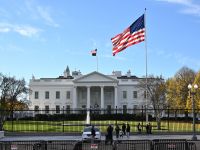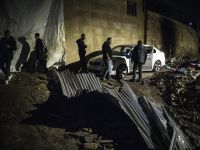UN Secretary-General Kofi Annan insisted Tuesday that he did not yet see any justification for a military strike against Saddam Hussein's regime since Iraq had not hampered UN weapons inspectors operating in the country.
Interviewed by Israel's Army Radio, Annan said the United States should wait for a report from the weapons inspectors before launching any offensive. "Obviously they [inspectors] are carrying out their work and in the meantime Iraq is cooperating and they are able to do their work in an unimpeded manner," Annan said. "Therefore I don't see an argument for a military action now."
In the interview, Annan expressed his hope that Iraq would not attack Israel in the event of U.S. strike.
Meanwhile, U.N. arms inspectors fanned out Tuesday to eight sites. which included an engineering company owned by the state Military Industry Corporation, a military chemical unit west of the capital, Baghdad, an oil research center, an electronics factory that produces components such as transistors and a medical research center.
Quoting U.S. intelligence officials, The Washington Times reported Tuesday that Iraq was hiding two weapons scientists in Saddam Hussein's presidential palaces and that there were signs chemical and biological weapons materials have recently been moved to underground storage facilities unknown to the inspectors.
The officials, according to the daily, said the scientists were being hidden apparently to prevent the inspectors from questioning them.
On its part, the Iraqi newspaper al-Thawra has accused Washington of applying double standards, comparing the way it's dealing with Iraq to that used with North Korea. "If we compare what North Korea has done ... to the Iraqi issue, we will find that they are contrary to each other because Iraq has agreed since 1991 to get rid of its weapons," said the paper. "But look how America is dealing with both cases and how it is threatening Iraq ... with invasion and occupation."
The Iraq daily quoted Trade Minister Mohammed Mehdi Saleh as saying Iraq was ready for war and that the country "will fight much harder than it did in 1991.
"Whether we give our land or not, whether we give our future or not, whether we give our houses or not — this is what we are fighting for." (Albawaba.com)
© 2002 Al Bawaba (www.albawaba.com)







